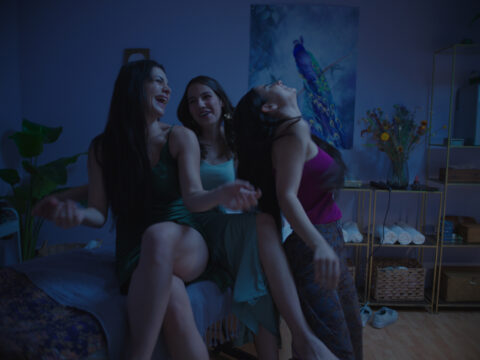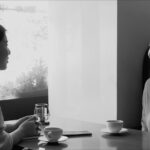It’s worth acknowledging that all the major international film festivals, whether wittingly or not, are vehicles for state soft power. They show off the best films from a particular country, the best co-productions they are involved in and also the values that make their country such a wonderful place. For one thing, without state funding, a lot of these festivals — running usually as private-public partnerships — would find it harder to even exist.
And festivals are disappearing in war-mongering and war-abetting states such as Russia and Belarus. In an authoritarian state like Saudi Arabia with a spotty human rights record, the Red Sea festival inspires moral questions about whether merely attending is participating in white-washing. And in a contentious state like Isreal, their film festivals are boycotted by a broad swathe of filmmakers objecting to the occupation of Palestine.
The Berlinale is not controversial like the Moscow Film Festival (still accepting submissions somehow for the most morally vacuous amongst us) or Tel Aviv might be, but it’s still a political place. Its very location — Potsdamer Platz, once a no-man’s land between east and west — speaks to a bridging of borders and ideas. The two times I crossed the very square for pre-screenings (written before the festival proper started), there have been modest yet passionate protests: a free Palestine protest with an inordinate, unfair amount of police officers; and the SGP rallying to Stop The Ukrainian War — which, as far as I understand, means giving lots of land away to Russia. Great solution, guys.
Germany is a place where you can sort of protest kind of freely (unless its large pro-Palestine rallies or you want to stop the coal-mine in Lutzerath). And unless you believe the bonkers conspiracy theory that the entire country has been run as a GMBH (the German name for a company with limited liability) by the USA since World War Two, it’s widely considered that Germany is a genuine democracy.
Call me a wishy-washy liberal, but the values in principle — equality of the sexes, LBGT rights, the right to quiet time after 11 pm, the right to drink beer almost everywhere you want, fixed working hours — are values that I more or less agree with, making it a nice country to call home. And these are values you can see either explicitly or implicitly across vast parts of the state-funded Berlinale, which is a massive exercise — conscious or not — in wielding soft power.
One section that hones in on German ideals through cinema, whether at home or abroad, is Perspektive Deutsches Kino — a small but weighty section focusing on German-made films, German co-productions, German directors and German funding bodies. This means that the film can be set in Berlin and focus on millennials navigating their neuroses, or set in Iran and tackle rape culture. It only needs some German element to qualify for this section, which promotes a liberal, inclusive view of world politics, making for a fascinating exercise in Deutsch diplomacy.
I might be writing this slightly hungover, but I’m not just riffing. The political focus is right there on the website:
“The cinematic ideas should stimulate discussion, emotionally engage audiences and open their eyes. Because filmmaking means helping to shape the world – and the future.”
So let’s see, through the four films I watched, how Germany views itself and the world through film.
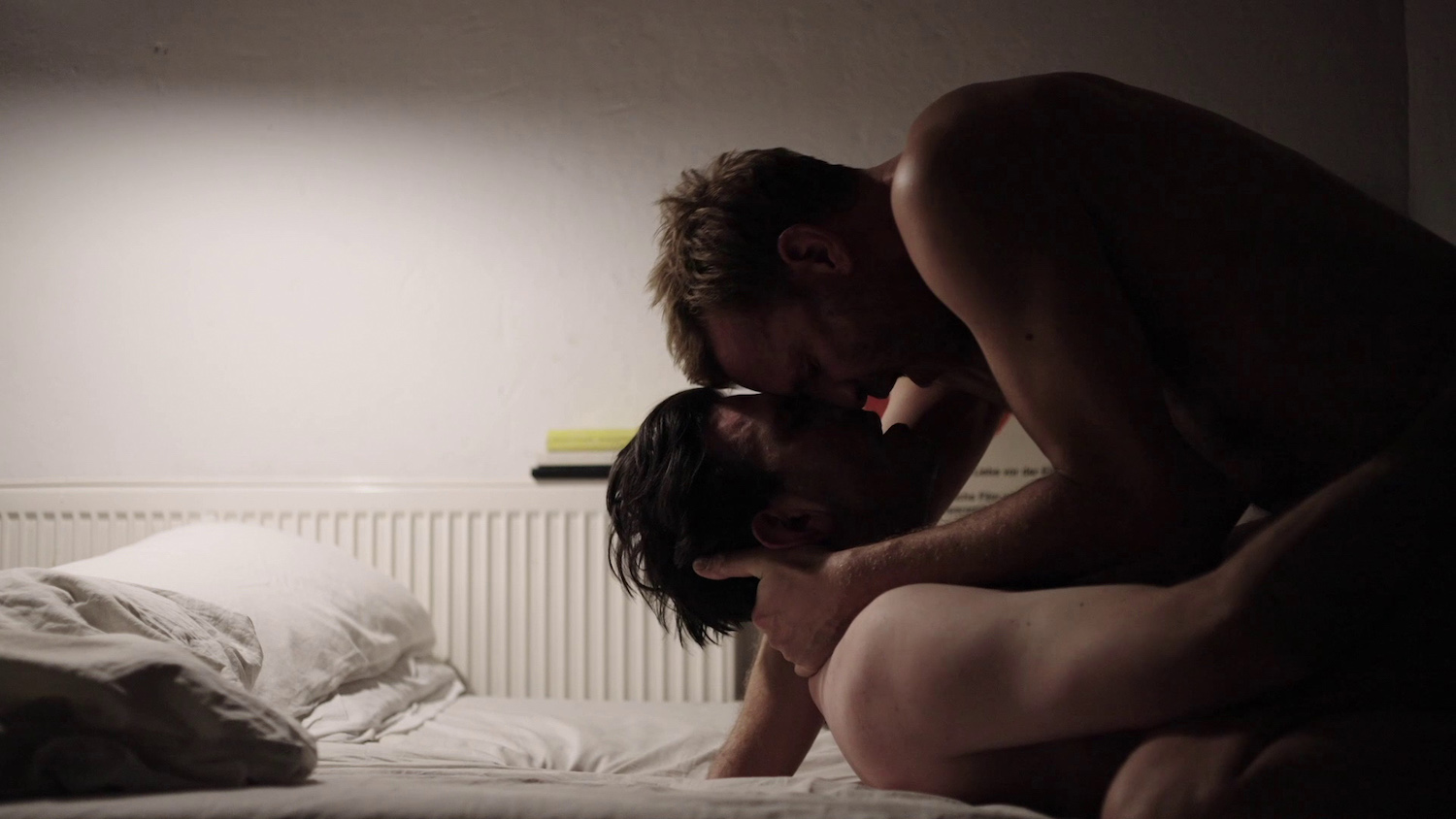
Bourgeois Neuroses
I started with Bones and Names (Fabien Stumm, 2023, above). It sounds better in German. Knochen und Namen has a nice ring to it but Bones and Names sounds like “we’ve got Bones and All (Luca Gaudignino, 2022) at home.” I’d advise an English title change!
The debut film of established actor Stumm — with credits in Ivie wie Ivie (Sarah Blaßkiewitz, 2021) and Great Freedom (Sebastian Meise, 2021) — is an astute relationship-meets-art-meets-quarter-life crisis comedy-drama that boasts a distinct low-key sensibility.
A gay couple, played by Stumm himself and Knut Berger, work out the fault-lines in their relationship through their respective artistic professions — writing and the theatre.
In this battle between quiet introspection and extroverted expression, a third art-form prevails: the home-living magazine. Planimetric frames, a beige colour scheme and careful framing made me start calculating the square metre cost of each Berlin apartment than focus on whatever they were talking about. There are some finely acted sequences, especially when the protagonist’s chaotic niece threatens to take the reins of the piece, but I felt little life bubbling underneath the carefully calibrated conflict at the core.
When one character asserts that we are nothing but bones and names — aha! the title! — I couldn’t help but wish for a mysterious and all to rouse their distinctly bourgeois German condition out of stasis.
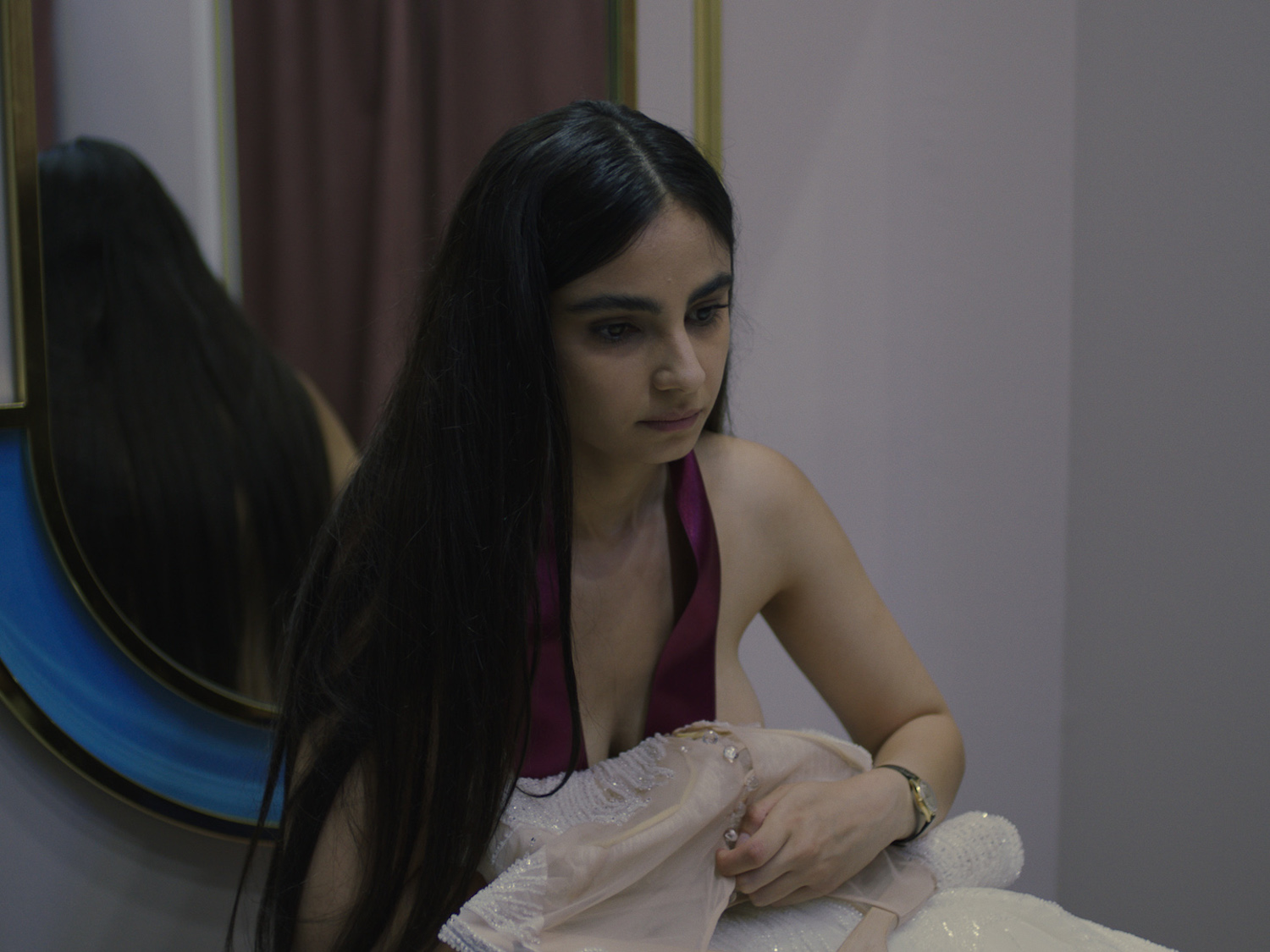
Breaking The Madonna and the Whore Complex
It was a poor, uninteresting start. Thankfully, one film that managed to point towards that mysterious, imperceptible and all was Elaha (Milena Aboyan, 2023, feature and above). This film sincerely grapples with its dilemmas with a frank and refreshing love of its eponymous character, passionately rendered by newcomer Bayan Layla. Compared to Bones and Names, which is obtuse to a fault, the Kurdish-German milieu in Aboyan’s debut feature is well-understood, researched and rendered with love, understanding, and a lot of reservations.
Germany’s multiculturalism means you have a lot of worlds within worlds. I’m still in and out of the expat bubble, which is relatively international, but probably looks similar in other European countries. Other communities are more closely knit and bring their cultures and ideals almost piecemeal into Germany. We meet Elaha at a traditional Kurdish wedding; the camera bobs through the dancing and follows her into the girl’s toilet — a natural starting point as this is one of few locations where women can be left alone.
Her friends tell Elaha that a man is looking at her. That’s all it takes. In several weeks, she will be married. On the cusp of whether or not to proceed with her Abitur (the German equivalent of A-Levels), questions of personal freedom and economic independence are swept away by a more existential concern; restoring her hymen for her wedding night. Otherwise, she will shame her family immensely and possibly be severely beaten or killed by her husband.
Hymen restorations aren’t covered by state insurance. They cost 2500 euros. Elaha works a mini-job (capped at 450 euros a month) and can’t find a guarantor for an instalment plan. Her claustrophobia is reflected in a 4:3 aspect ratio and a total lack of privacy: her mum walks in on her on the toilet, in the bath, and almost catches her masturbating.
This is a community where women’s sexuality is hidden under lock and key, where the husband — who has had plenty of sexual partners — is the only man she’s ever supposed to sleep with. But Elaha is a sexual, vibrant, interesting young woman; with her own ideas and feelings and desires.
The film squares the two ideas brilliantly, never condemning the community — with its rich music, great food (the biryani looks particularly nice), and friendly people — while also showing her Elaha aspires to a more liberalised German sexuality. In an apropos statement, a friend says “I wish we had German vaginas.” Women are reduced to mere body parts by the men in their lives. Elaha, looking into the camera at specific points, begs us to see the whole.
A necessary, vital, and beautiful film that takes on a surprising life of its own — throwing in an Ivan’s Childhood (Andrei Tarkovsky, 1962) reference here, a thriller sequence there and certain moments of sheer raw vulnerability — it’s easily the best of the Perspective Deutsches Films.
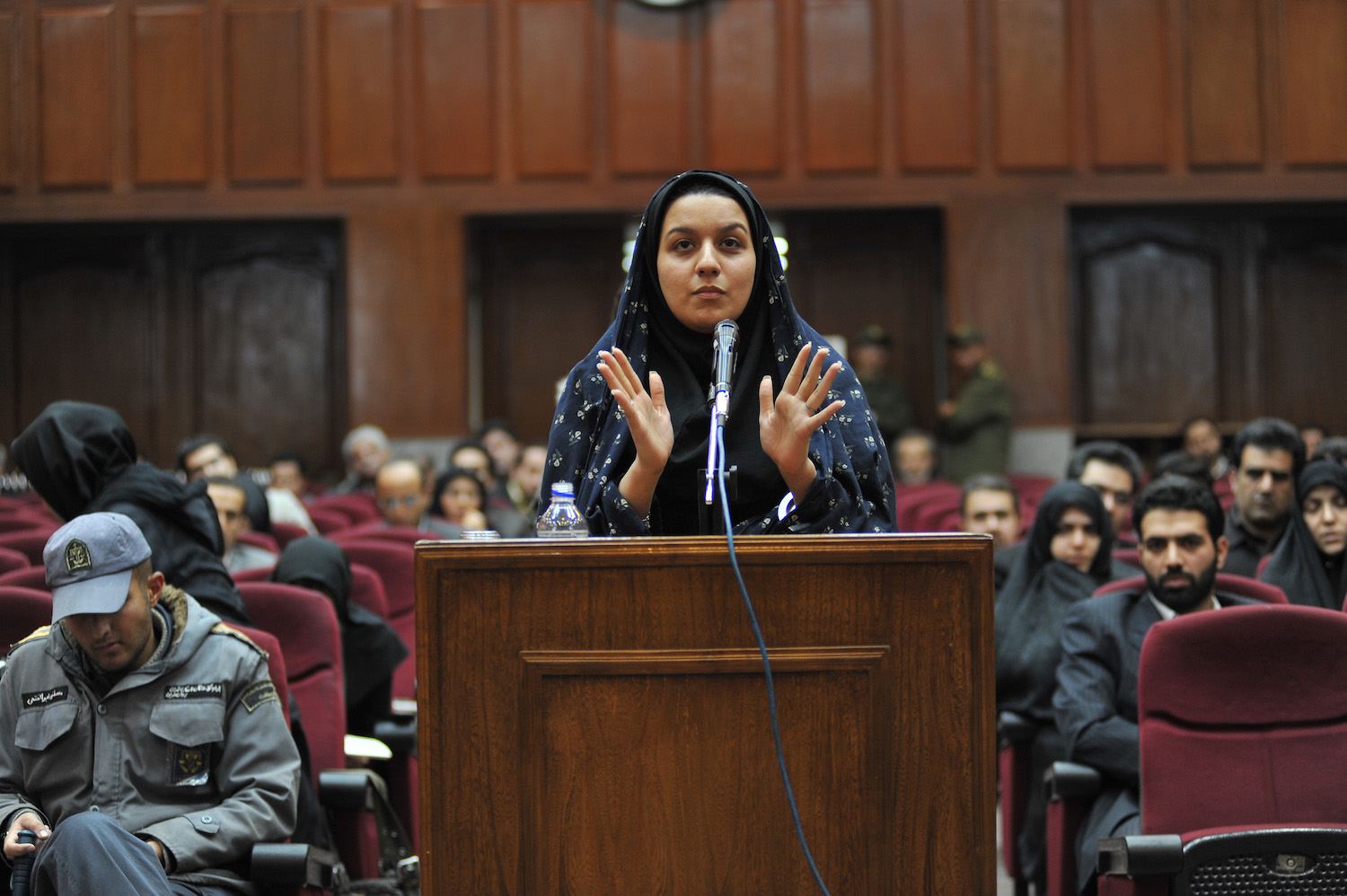
The Evils of Patriarchy
Replying to the “I wish we had German vaginas” statement in Elaha, another friend answers that it doesn’t matter whether they were Bosnian or Swedish or German: they still live in the fucking patriarchy. She’s right. The struggle is everywhere. Because if watching that film makes you hate men, Seven Winters in Tehran (Steffi Niederzoll, 2023, above) will have you making Molotov cocktails. It’s a tremendously sad but important documentary — if rather conventionally told — with a real chance of breaking out and becoming a big statement picture.
It tells the true story of Reyhanah Jabbari, a student in Tehran who stabbed and killed a man in self-defence after he tried to rape her. A mixture of corruption, patriarchal thinking and a family refusing to forgive led to her imprisonment for seven years before her final execution by hanging. Mixing the usual talking heads with audio recorded by Reyhanah herself, the film is a slow slide to the most miserable conclusion; a devastating indictment of a society running on misogyny and in desperate need of reform.
The Iran sequences are all shot in secret; there’s lots of grainy footage and iPhone shots here. They were smuggled out of the country in a feat of incredible daring. This kind of story is perhaps more interesting than the way it looks, which is a lot of footage of the city that doesn’t illuminate the story at hand.
I also didn’t appreciate how it withheld certain information to create a narrative out of this sad situation. It’s not the kind of thing worth dramatising like a Farhadi movie, especially considering how it ends. Still, considering the feminist protest movement that has galvanised the nation, this movie is another brick in the hands of the opposition. They need all the weapons they can get.
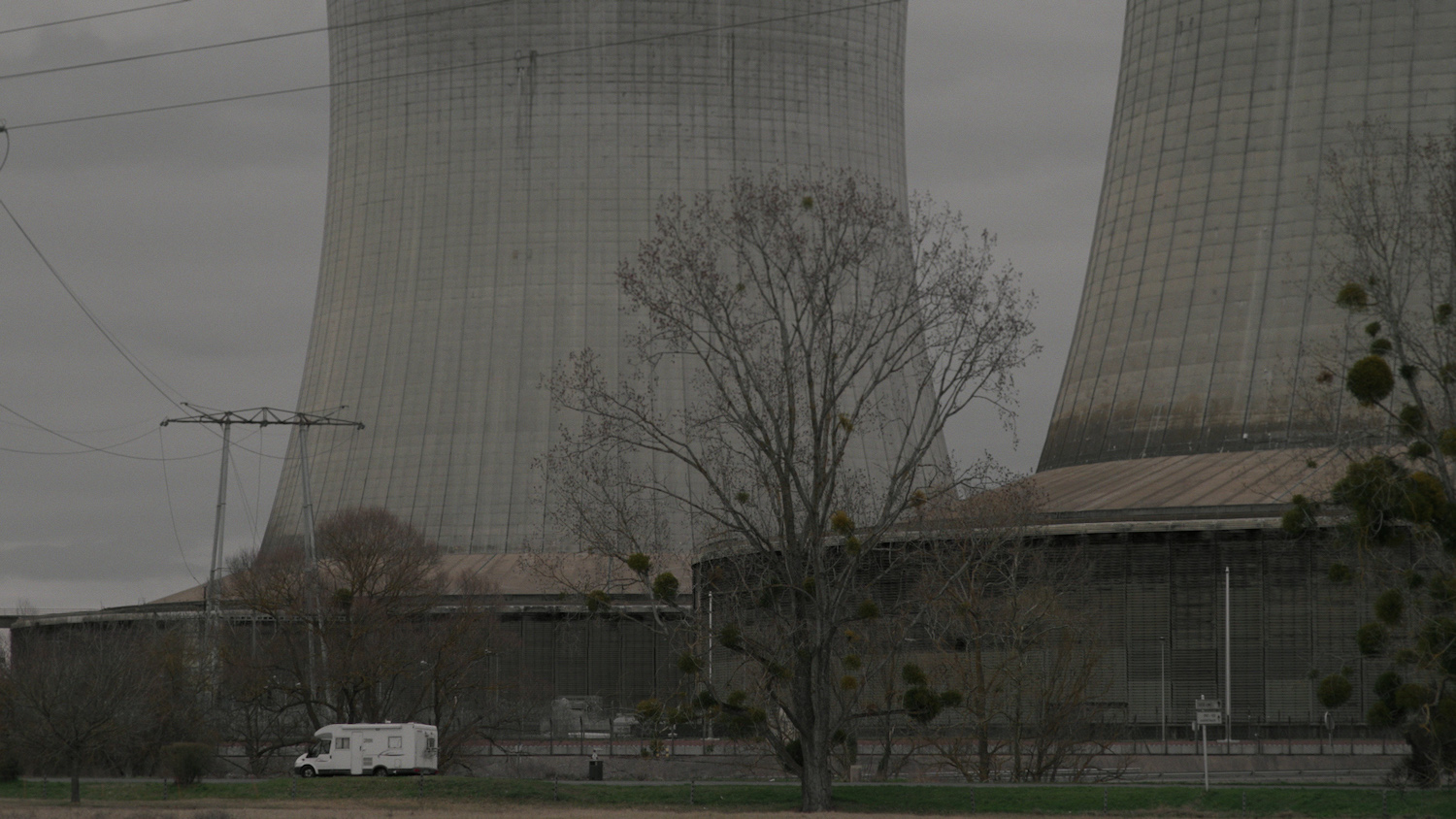
Atomised Labour
One weapon in the energy war is nuclear power. A scary word for the Germans, who only have three power plants in the entire nation, but a vital means of energy for the French. A whopping 70% of French energy comes from its 56 reactors, entirely operated by the largely-state owned EDF. This requires a logistical operation of massive proportions, relying on temporary workers living out of their vans. They are the Nuclear Nomads (Kilian Armando Friedrich, Titian Stromp Zargari, 2023, above).
The second documentary of the day, and my final film from this section, this a more low-key observational affair – a decent thesis film from the Hochschule Für Fernsehen und Film München made on a small budget that could’ve made a wonderful short, but is stretched kind of thin over 73 minutes.
The labourers are working class, and they largely enjoy the work. It commands massive wages: 7000 euros per month and upwards are considered standard salaries within the industry. We observe them moving from place to place, trying to find camp spots, milling about in the early hours — blanketed in electrical, light-blue and white fog — smoking endless cigarettes, cooking modest meals and reflecting on their life choices.
The most significant concern is the unpredictability of the work — which relies on a lot of temporary labour and has a very high turnover. This is somewhat concerning considering the importance of nuclear power, which requires incredibly specialist knowledge. (I once destroyed my Sim City by instaling a power plant with no university in my town). I assumed from The Simpsons (1989-eternity) that it’s the kind of job you held for life. There’s also the issue of radiation, which can cause health complications for people taking part. Still, they are happy with the life they choose as given the low cost of living, they can retire much earlier than their office worker contemporaries.
The German soft power position is more nuanced here, but I couldn’t help but feel that the film reflects the country’s concerns over nuclear power as a safe and credible means of energy. While the film is mostly observational and doesn’t take sides, Germans might be inclined to see the film as an affirmation that other means of power — such as that ridiculous coal mine in Lutzerath — might be a better option.
I wish I had an opinion, but alas, I am a film critic, not an energy expert. From the evidence in front of me, you’d think temporary jobs would be at least the bare minimum. And some permanent accommodation. I’m sure both the French and Germans could agree on that.
Redmond is the editor-in-chief of Journey Into Cinema.
